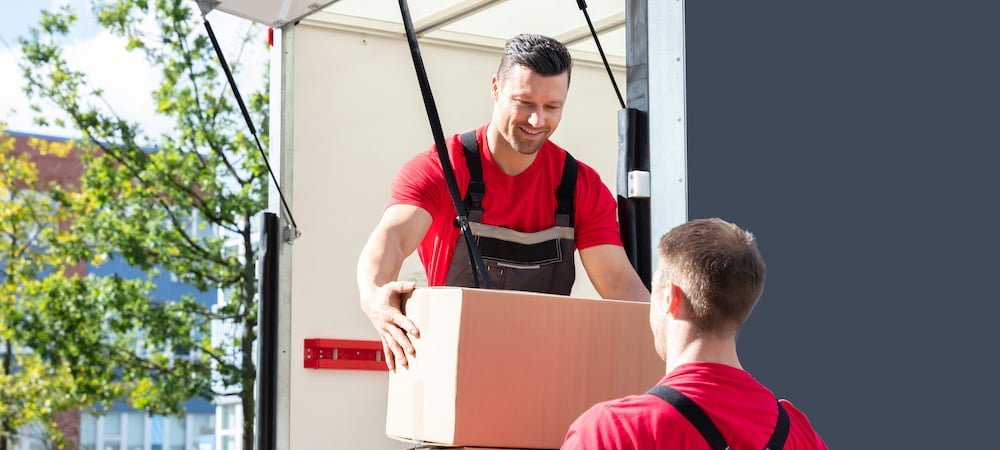Comprehending the Inclusions of moving and Freight Forwarding worldwide of Global and domestic Shipping
Steering via the complexities of moving and Freight forwarding can be difficult. Both processes entail distinct treatments and needs that are important for successful transportation. Recognizing the differences in logistics, documentation, and risk monitoring is important for individuals and businesses alike. This knowledge can greatly affect the efficiency and safety and security of deliveries. Several are uninformed of the details elements that affect the general experience and results. What variables should one think about to assure a smooth transition?
The Essentials of moving and Freight Forwarding
moving and Freight forwarding are essential elements of the worldwide logistics industry. They help with the transfer of products and personal possessions throughout international and domestic borders. moving mainly includes the moving of individuals or families, incorporating commercial and residential requirements. It typically consists of packaging, packing, carrying, and unloading items at the location. In contrast, Freight forwarding is concentrated on the delivery of goods, often wholesale, making use of numerous transport modes, such as land.freight, sea, or air forwarders act as middlemans, collaborating logistics to assure prompt shipment while maneuvering via complicated laws and customs procedures. Both procedures require cautious planning, organization, and interaction to assure effectiveness and reduce disruptions. Understanding these principles is essential for any person associated with logistics, as they lay the foundation for even more innovative elements of shipping and transportation management.
Key Components of Freight Forwarding Providers
Freight forwarding solutions incorporate numerous crucial components that assure smooth transportation of items. Secret duties of Freight forwarders consist of taking care of logistics, coordinating shipments, and dealing with custom-mades clearance. Additionally, understanding necessary shipping documents is imperative for conformity and efficient movement of cargo.
Freight Forwarder Responsibilities
A trusted Freight forwarder plays an important function in coordinating the transportation of goods, guaranteeing that deliveries are managed effectively and in conformity with guidelines. Their duties incorporate different crucial jobs, consisting of picking excellent transport courses, working out Freight rates, and handling logistics. They function as middlemans between shippers and service providers, making sure that cargo is correctly packaged and labeled for safe transit. Furthermore, Freight forwarders track deliveries, giving updates to customers regarding the standing and anticipated delivery times. They additionally assess and manage dangers associated with transportation, recommending insurance options as needed. By promoting communication and documents, Freight forwarders improve the delivery process, lowering potential hold-ups and enhancing general supply chain performance.
Delivering Documentation Essentials

Understanding Custom-mades Clearance and Documents
Exact documentation is vital in the personalizeds clearance procedure, as it guarantees compliance with numerous laws. An introduction of custom-mades regulations highlights the complexities dealt with by shippers and Freight forwarders. Common clearance obstacles can considerably influence delivery timelines and prices, making understanding this element necessary for efficient logistics.
Significance of Accurate Documentation
Steering through the complexities of worldwide shipping requires a keen understanding of customs clearance and the essential role of paperwork. Exact documentation is necessary for making sure that shipments comply with guidelines and reach their locations without delays. Effectively prepared records, consisting of costs of lading, industrial billings, and packaging listings, assist in smooth interactions with customs authorities. Inaccuracies can lead to shipment delays, penalties, or even confiscation of items. Complete documents help in tracking shipments and settling disagreements. Subsequently, businesses involved in moving and Freight forwarding have to focus on meticulous paperwork methods to browse the elaborate landscape of global shipping effectively. This persistance not just improves procedures however additionally improves customer satisfaction by ensuring timely shipment.
Customs Laws Introduction
Steering customs policies is an essential facet of global profession that straight impacts the success of moving and Freight forwarding procedures. Effective personalizeds clearance needs an understanding of numerous laws, including tolls, obligations, and import/export restrictions. Precise documentation is essential, as it ensures compliance with legal needs and assists in the reliable movement of products across borders. Secret documents usually consist of commercial invoices, packing checklists, and expenses of lading, which supply thorough info about the delivery. In addition, customs brokers play an important role in steering complex regulations, acting as intermediaries in between carriers and personalizeds authorities. By maintaining thorough knowledge of customs processes, organizations can significantly reduce hold-ups and reduce expenses related to global shipping.
Typical Clearance Challenges
Various obstacles can emerge throughout the custom-mades clearance process, address often making complex the activity of products across boundaries. One significant concern is inadequate paperwork, which can lead to charges and hold-ups. Importers and exporters have to ensure all called for documents, such as invoices, packing lists, and certificates of origin, is complete and accurate. Additionally, disparities in evaluation can cause examination from custom-mades authorities, leading to extra responsibilities or evaluations. Language barriers might additionally pose difficulties, as miscommunication can lead to misconceptions pertaining to laws. Changes in personalizeds policies can develop complication, necessitating continuous alertness by carriers. Inevitably, conquering these clearance tests requires detailed prep work and a clear understanding of customizeds needs to facilitate smooth international transactions.
Packaging and Classifying Requirements
Although often ignored, product packaging and labeling demands play a necessary role in the delivery process, guaranteeing that goods are secured and conveniently recognizable throughout their trip. Appropriate product packaging safeguards items from damages during transportation, while likewise promoting reliable handling and storage. Utilizing ideal products, such as bubble cover, foam, or durable boxes, can avoid breakage and loss.Labeling is similarly vital. Accurate and clear labels share vital information, including the location, taking care of directions, and components. Tags need to follow laws details to domestic and international delivery, which may consist of harmful materials identification or personalizeds declarations.Moreover, standardized labeling methods simplify the monitoring procedure and improve total logistics efficiency. By sticking to product packaging and labeling demands, services minimize the danger of delays, damages, or misdelivery. Eventually, these methods add greatly to the success of moving and Freight forwarding procedures, making sure a seamless delivery experience for all celebrations involved
Tracking Deliveries: Importance and Methods
Reliable packaging and labeling set the structure for successful shipment monitoring, however tracking shipments is similarly necessary in the shipping procedure. Shipment tracking gives real-time visibility, which assists consumers and organizations keep track of the progress of their items. This Bonuses transparency improves customer fulfillment, considering that customers can remain educated concerning distribution timelines and any type of prospective delays.Several approaches promote reliable monitoring. Barcode scanning is a common technique, utilizing unique identifiers to keep an eye on packages throughout their journey. Furthermore, GPS technology makes it possible for accurate area tracking, enabling timely updates and improved logistics management. Numerous shipping companies currently supply electronic platforms and mobile applications that supply individuals with simple access to tracking information.The importance of shipment monitoring can not be overstated; it reduces the threat of lost or harmed items, enhances operational performance, and cultivates depend on in between recipients and shippers. For that reason, incorporating reliable monitoring techniques is important for effective domestic and worldwide delivery operations.
Insurance coverage Options for Your Goods

Protecting insurance for items en route is a crucial factor to consider for organizations and people alike. Insurance coverage alternatives differ based on the kind of delivery, value of goods, and certain threats entailed. Usual types consist of copyright responsibility, which covers loss or damages while in transit, and full-value insurance, offering considerable coverage for the total worth of the goods.Shippers might likewise take into consideration aquatic insurance for worldwide deliveries, protecting versus threats linked with sea transport. It is necessary to assess the details requirements of the shipment and review the terms of any policy.Furthermore, comprehending exemptions and limitations is essential to stay clear of possible voids in protection. Carriers need to engage with insurance professionals to check out tailored solutions that fit have a peek at this site their one-of-a-kind scenarios. Eventually, purchasing the right insurance policy can reduce financial risks and give tranquility of mind during the delivery process.
Picking the Right moving and Freight Forwarding Service
When picking a moving and Freight forwarding service, it is vital for organizations and individuals to very carefully examine their specific requirements and top priorities. Aspects such as the volume of goods, destination, and timeline play a considerable function in this decision-making procedure. Researching different suppliers is suggested; contrasting their solutions, pricing, and client evaluations can expose beneficial insights.Additionally, it is needed to take right into account the experience and knowledge of the company in managing certain kinds of freight, especially for worldwide deliveries that might include custom-mades clearance. Transparency in pricing, including any kind of covert fees, ought to likewise be scrutinized.Furthermore, reviewing the level of consumer assistance supplied is essential, as prompt communication can alleviate issues during transportation (domestic shipping). Lastly, confirming the accessibility of insurance policy options assures that goods are secured throughout the delivery procedure. By taking these organizations, people and actions can make enlightened selections that align with their logistics needs
Frequently Asked Inquiries
What Kinds of Goods Can Be Shipped Internationally?

Just How Do Delivery Prices Range Different Service Providers?
Shipping prices differ significantly in between carriers because of aspects such as solution rate, freight kind, distance, and extra services used. Each provider's pricing design mirrors these variables, affecting overall delivery expenses for customers.
Can I Ship Hazardous Products or Perishables?
Shipping dangerous materials and perishables goes through rigorous policies. Service providers typically call for details packaging, labeling, and documents. Shippers must ensure compliance with regional and international legislations to avoid penalties and assure risk-free transport.
What Should I Do if My Delivery Is Delayed?
When encountered with a delivery delay, one should initially speak to the copyright for updates. After that, review any type of notifications received, examine alternate services, and maintain all events informed concerning the scenario to reduce disruptions.
Are There Weight Limits for Delivery Containers?
Weight limitations for delivery containers differ depending on aspects like container dimension and delivery guidelines. Normally, standard containers have an optimum gross weight of around 30,000 to 32,000 kgs to assure secure transport and handling. In contrast, Freight forwarding is focused on the delivery of products, usually in bulk, utilizing different transport modes, such as air, land.freight, or sea forwarders act as middlemans, coordinating logistics to guarantee prompt delivery while maneuvering with complicated laws and custom-mades procedures. Secret obligations of Freight forwarders include managing logistics, collaborating shipments, and dealing with personalizeds clearance. A trusted Freight forwarder plays a necessary duty in coordinating the transport of products, making sure that deliveries are handled efficiently and in compliance with policies. Effective packaging and labeling set the structure for successful shipment management, however tracking deliveries is equally crucial in the shipping process. Lots of delivery companies currently provide digital systems and mobile applications that offer individuals with simple accessibility to tracking information.The relevance of delivery monitoring can not be overstated; it lessens the threat of shed or damaged goods, boosts operational effectiveness, and promotes trust in between shippers and recipients.
Comments on “Step-by-step walkthrough to hiring the right overseas movers”